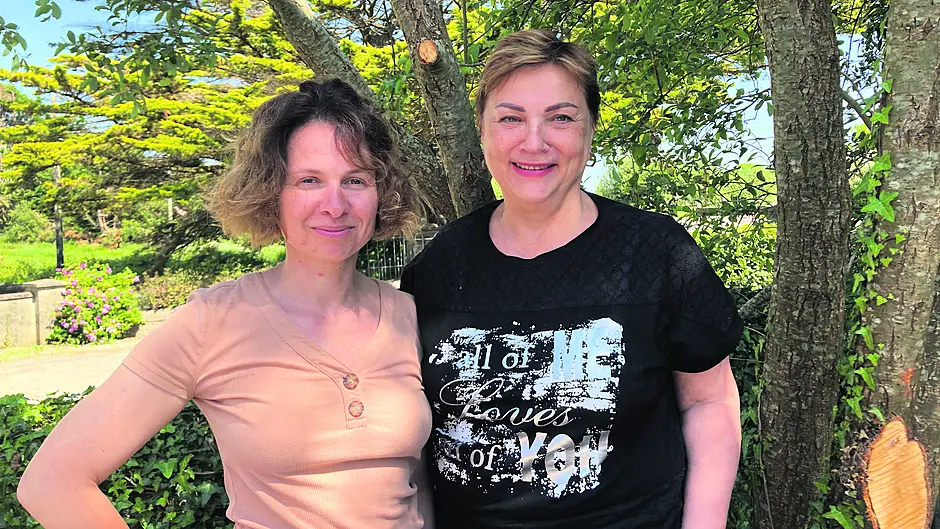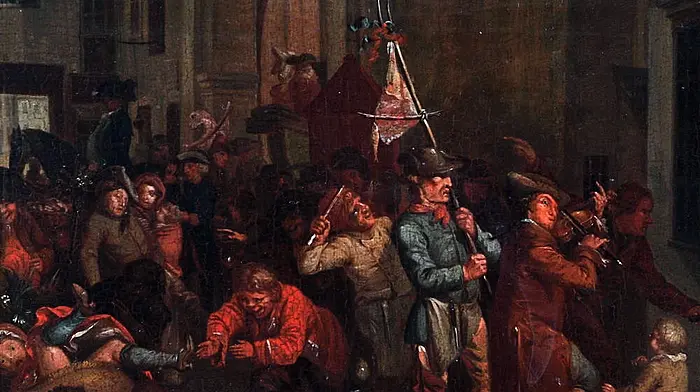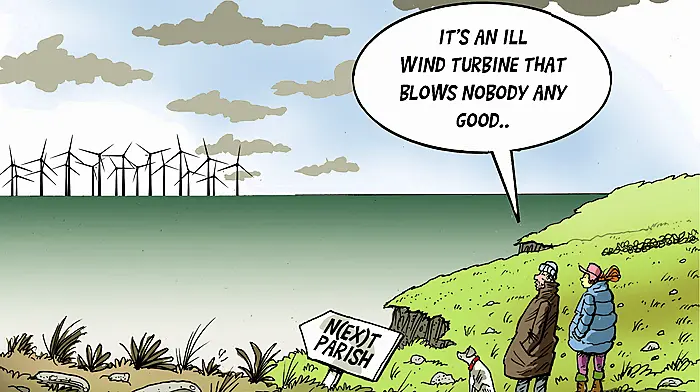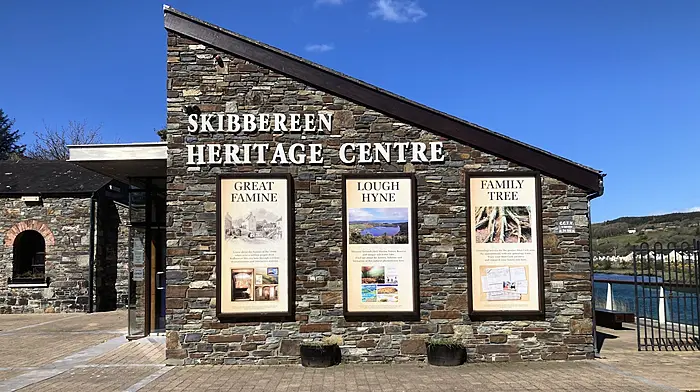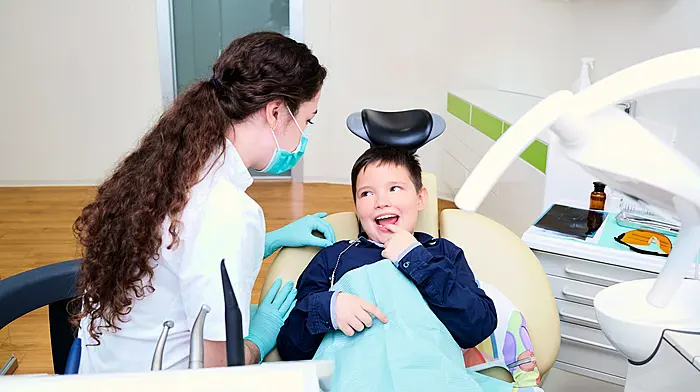In Odessa, Elena Baranova had her own psychology practice. She also helped displaced Ukrainians in Moldova. Now she is displaced herself, one of 38 people living in a former nursing home near Skibbereen
‘We can’t use that word – “sad” – it is much bigger than that.’
That is what Svitlana Makutina says about what the war in Ukraine is doing to her, and her country.
With the help of a friend Elena Baranova, who translated, Svitlana elaborated, saying: ‘We have no house, no future, no family. There is nothing.’ It is Svitlana’s deepest wish to be reunited with her son, and his family, who are now living in Scotland.
In a different conversation, the strain Elena is feeling also becomes evident and she breaks down and cries.
The interview took place the morning after the huge Nova Kakhovka dam on the Dnipro river was destroyed in the Russian-controlled part of Kherson, forcing thousands to flee 80 settlements in the flood zone.
It has been described as the largest man-made environmental disaster in Europe in decades and Elena shows photographs of flooded towns and villages, as well as animals slowly drowning as they try to make it onto dry land.
Amidst the heartache, there were up-beat moments because Ukrainian women tend to be resilient.
The fact that 38 people – including women, men, teenagers, and children under 12 – can, within a two week period, move into an old schoolhouse and former nursing home at Church Cross, near Skibbereen, and make it feel like home, is testament to their stoicism.
Svitlana, a retired history teacher who latterly ran a restaurant, café and bar, doesn’t speak English very well, but she can read it and understands it well enough.
She doesn’t need English to notice twitching nostrils and she leaves for a minute to bring some of the baked cheesecake that has just come out of the oven.
There is a burco boiler bubbling away on the table to the right and a cup of tea appears on the table. Her movements are swift and efficient, practised, without effort.
These are some of the small, tell-tale signs of people who simply get on with things. It’s like Elena said: ‘There are no plans for our future. We live day-to-day.’
The owner of the building, Denny Collins, is around, walking in and out of the dining room. He makes an observation: he said he knows what would happen if 38 Irish people were all living under the one roof.
These Ukrainian women, he said, are organised, hard working. They fill out rotas and keep on top of everything, including the cooking, the cleaning, and the laundry.
Having another centre at what was once The Paragon Bar in Skibbereen, Denny says the women manage to keep their distance – their own private space – but tend to mix well and work well together.
Sometimes in the course of the conversation it is hard to remember what they have left behind because there are tangents.
One wonders, for example, how Svitlana at 69 doesn’t look a day over 50. She says she has her secrets – secrets she is not giving up – and everyone laughs.
As impressive as Svitlana is – as the maker of rotas and a person who wears a near constant smile on her fabulous face – Elena feels like someone you could have known all your life despite the fact that it has been a mere 50 minutes.
Elena left Odessa one week after the Russian invasion and moved to Moldova with her 15-year-old son, but when that proved too unstable it was her son who suggested they relocate to Ireland.
‘He wanted to come here,’ she said, ‘because of the people, the language and the nature. He also mentioned the historic conflict with the UK and suggested: “They’ll understand us”.
She speaks eloquently about the kindness of the people of Ireland, and the community she now finds herself in.
‘I think it is a great country,’ she said, ‘and the Irish people are really its treasure. They are very friendly, very kind, and we are thankful to all of you. We know about the country’s housing crisis. We know the situation is bad, but we have received no bad word from Irish people. We have had no negative experience,’ said Elena, and this time there are tears of gratitude.
 Ivan Humeniuk, who came to Ireland from Ukraine one year ago, and is now working with West Cork Development Partnership, seen helping women with their paperwork at Church Cross.
Ivan Humeniuk, who came to Ireland from Ukraine one year ago, and is now working with West Cork Development Partnership, seen helping women with their paperwork at Church Cross.
In Odessa, Elena had her own psychology practice. She worked helping displaced Ukrainians in Moldova too.
At the new centre, it is easy to see why people gravitate towards her – and it’s not just because she translates so well.
In the midst of all of this Ivan Humeniuk, who came to Ireland from Ukraine one year ago, and is now working with West Cork Development Partnership, walks in with a group of women trailing after him.
They all have paperwork. He’s busy but not too busy to say hello and give a quick update on the information clinics he conducts.
Denny walks back in and takes away the cups and plates. He says from ‘tomorrow’ the residents will be doing their own shopping and cooking.
With four buses stopping daily outside the door, the women say getting around is not a problem. They will shop locally and Denny said he’ll arrange for the groceries to be transported back to Church Cross.
English lessons, too, are being organised, and in the two short weeks since they arrived, neighbours have called in to introduce themselves, members of walking groups have shown residents the beautiful trails in the vicinity, while Ilen Rovers have ‘signed up’ 17-year-old Egor to play with the U18s. Local schools, too, have been in touch about enrolment in September.
Although we probably should respect his privacy, and not mention it in print, Jeremy Irons called earlier that morning and gave employment to two men.
Denny claims he didn’t recognise the Hollywood star when he arrived. Elena said she saw a man pull up but was too busy talking to her mother and father to pay attention to who it was.
She, and some of the women working in the kitchen, said they would wait until he returned with the men later that evening just to say ‘hello’ and maybe exchange a few words with him in English.
Only in West Cork would one get the opportunity to practise conversational English with an acting legend. It’s a small compensation but these people take them where they find them.

